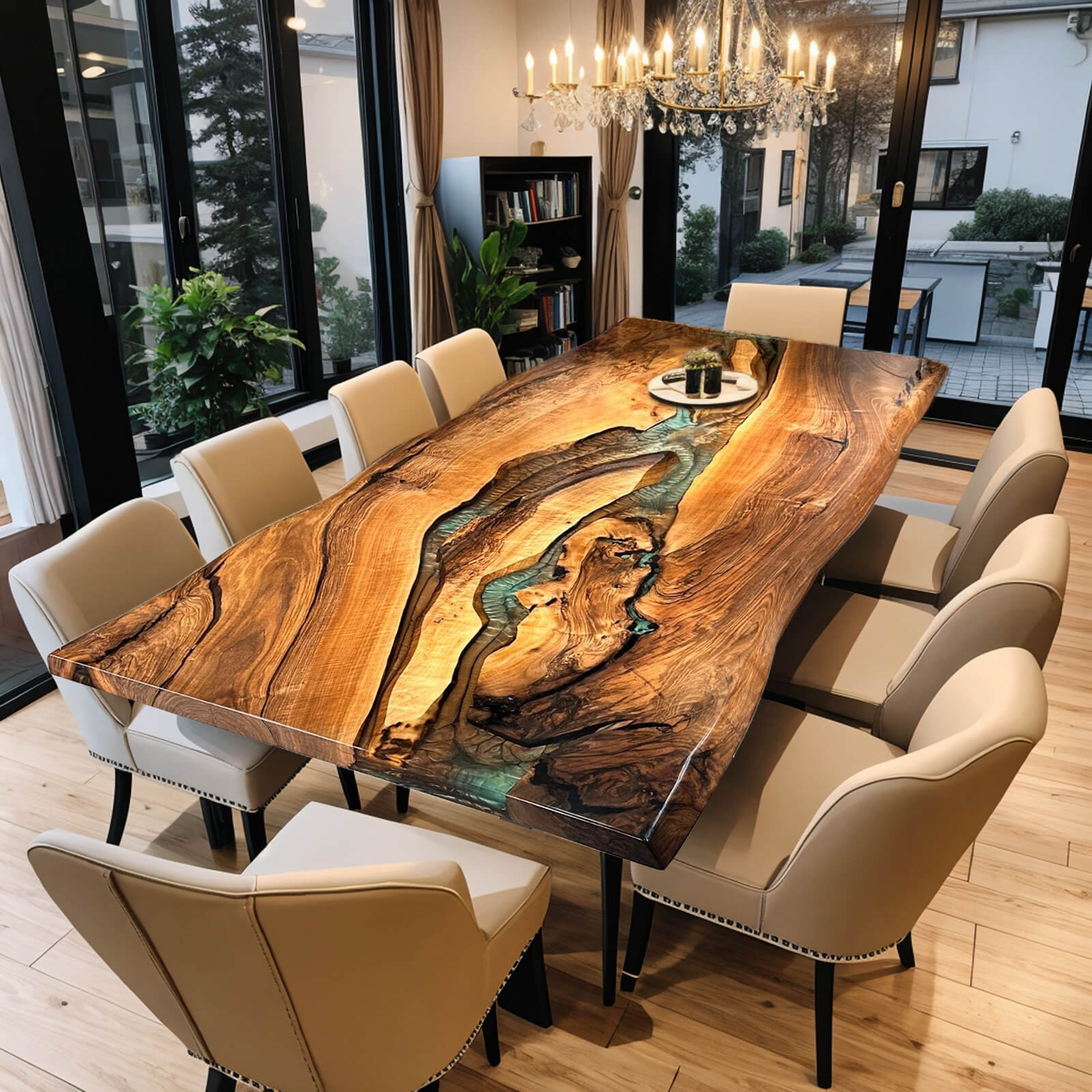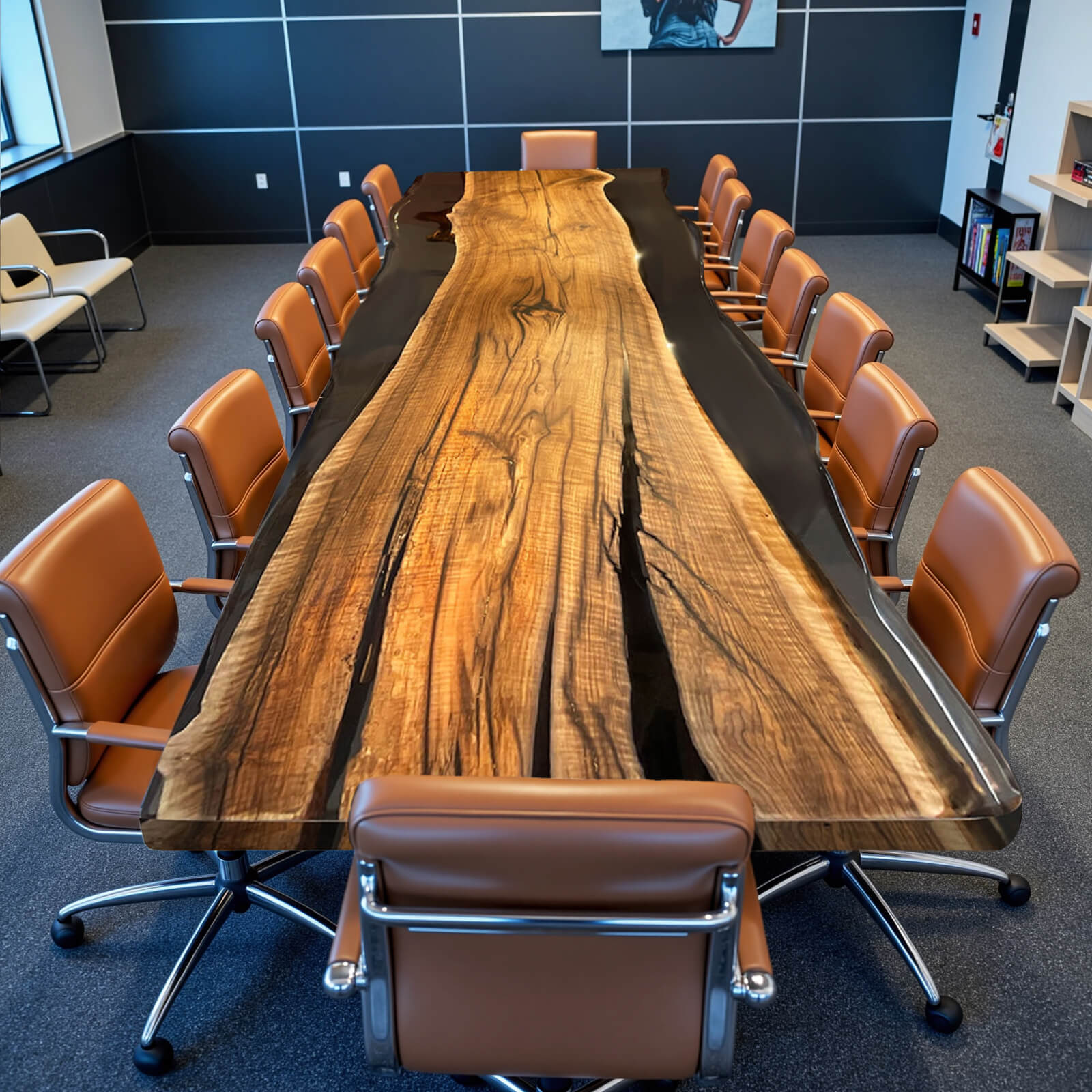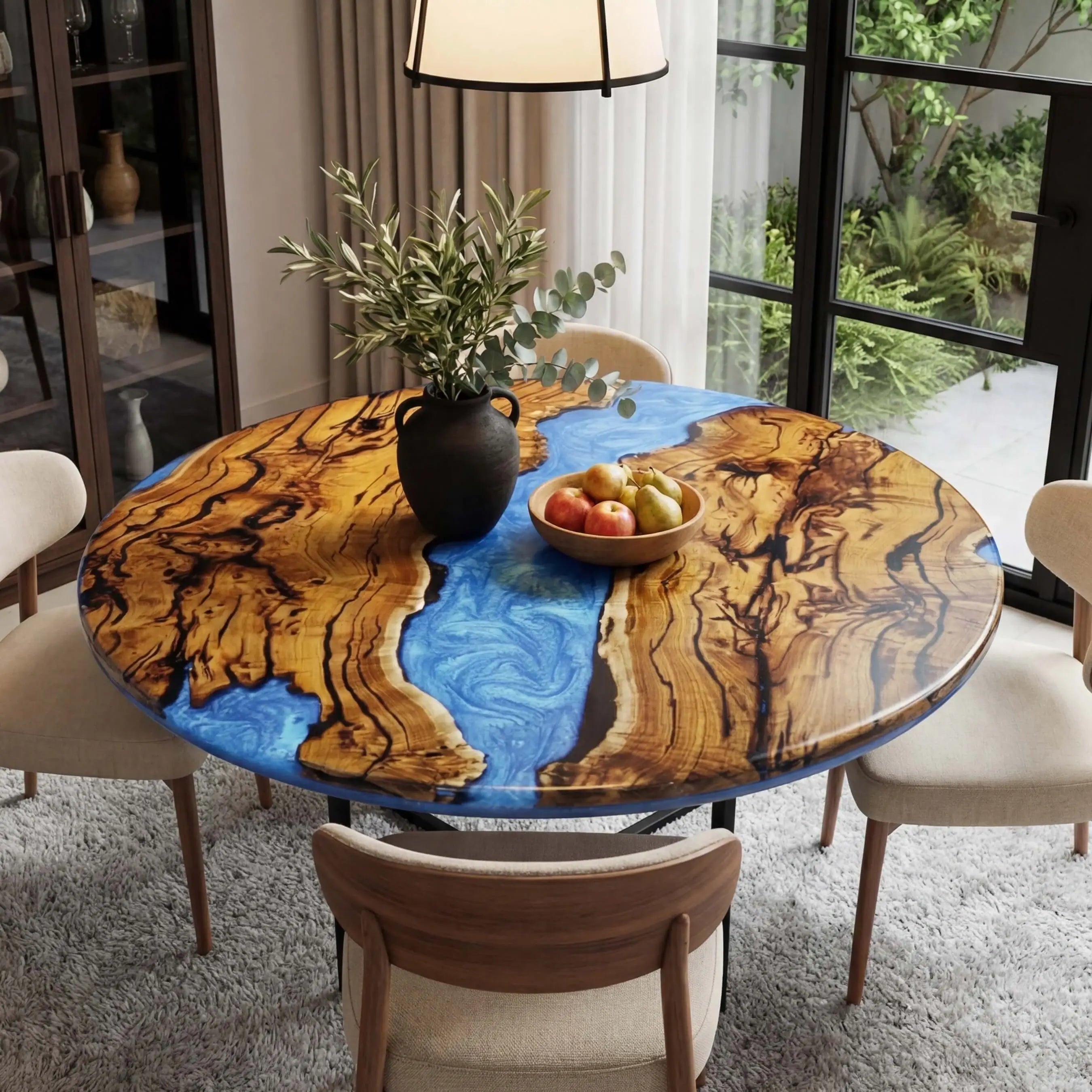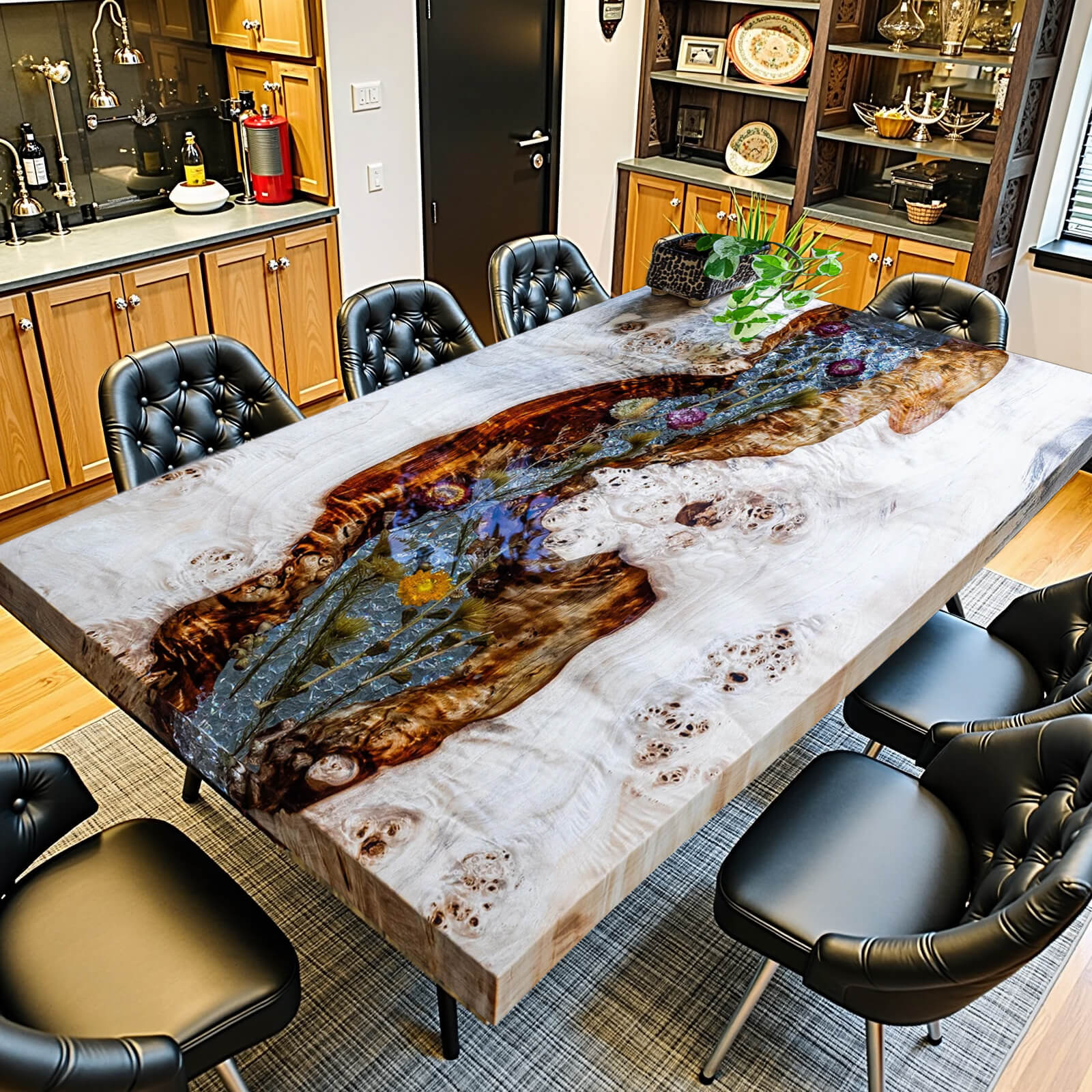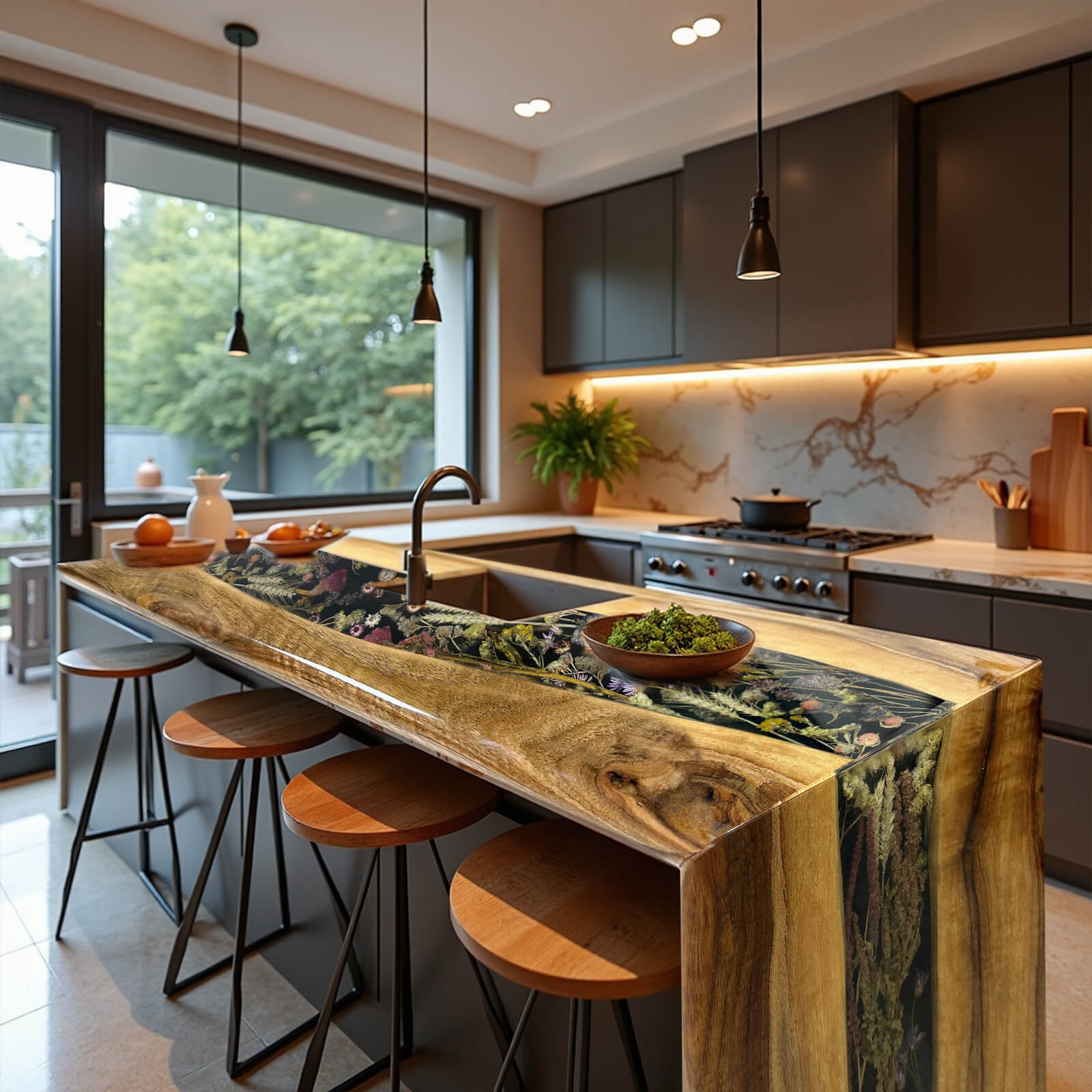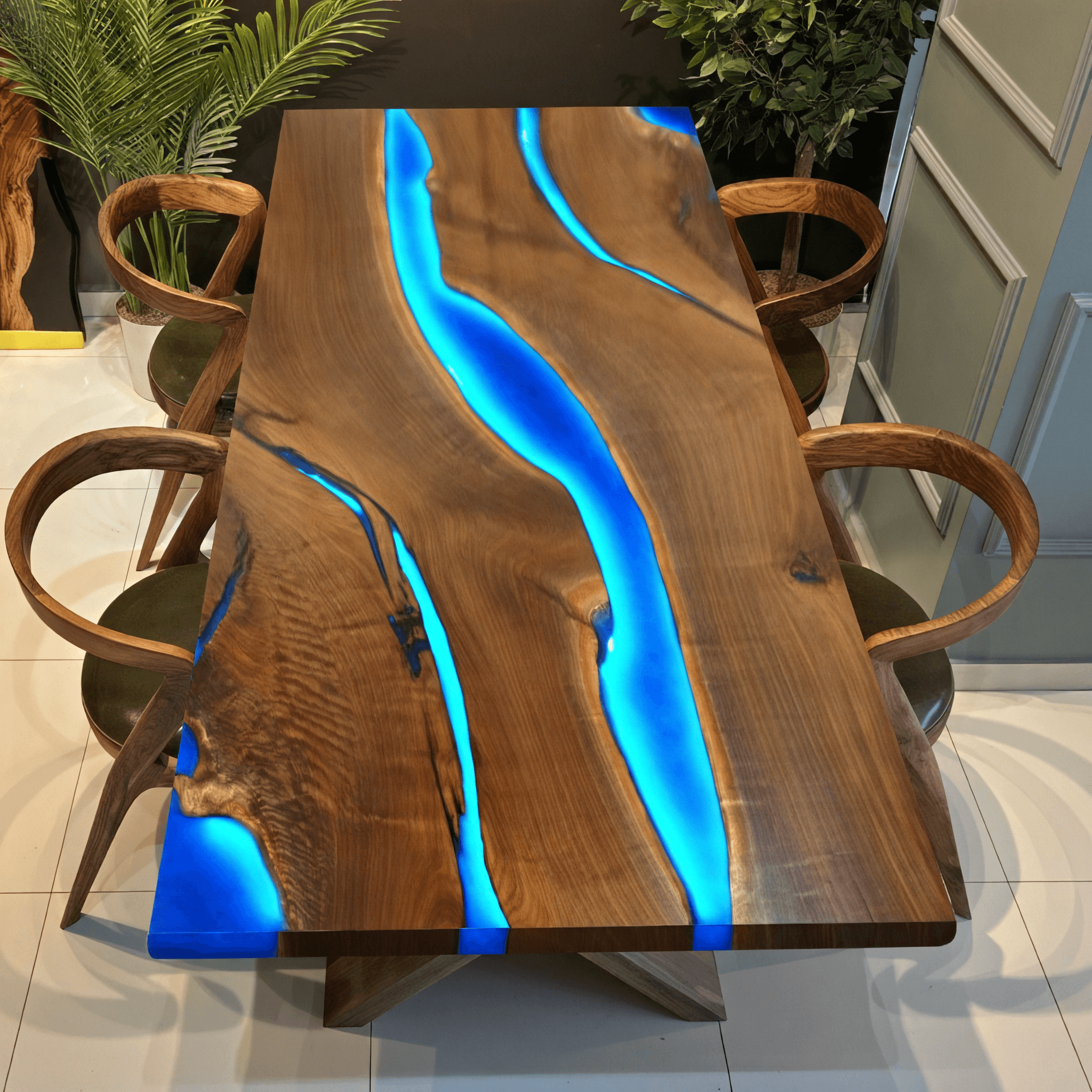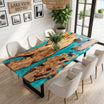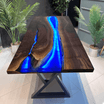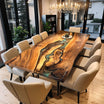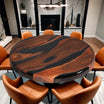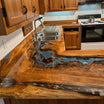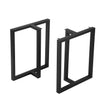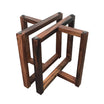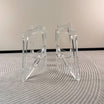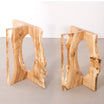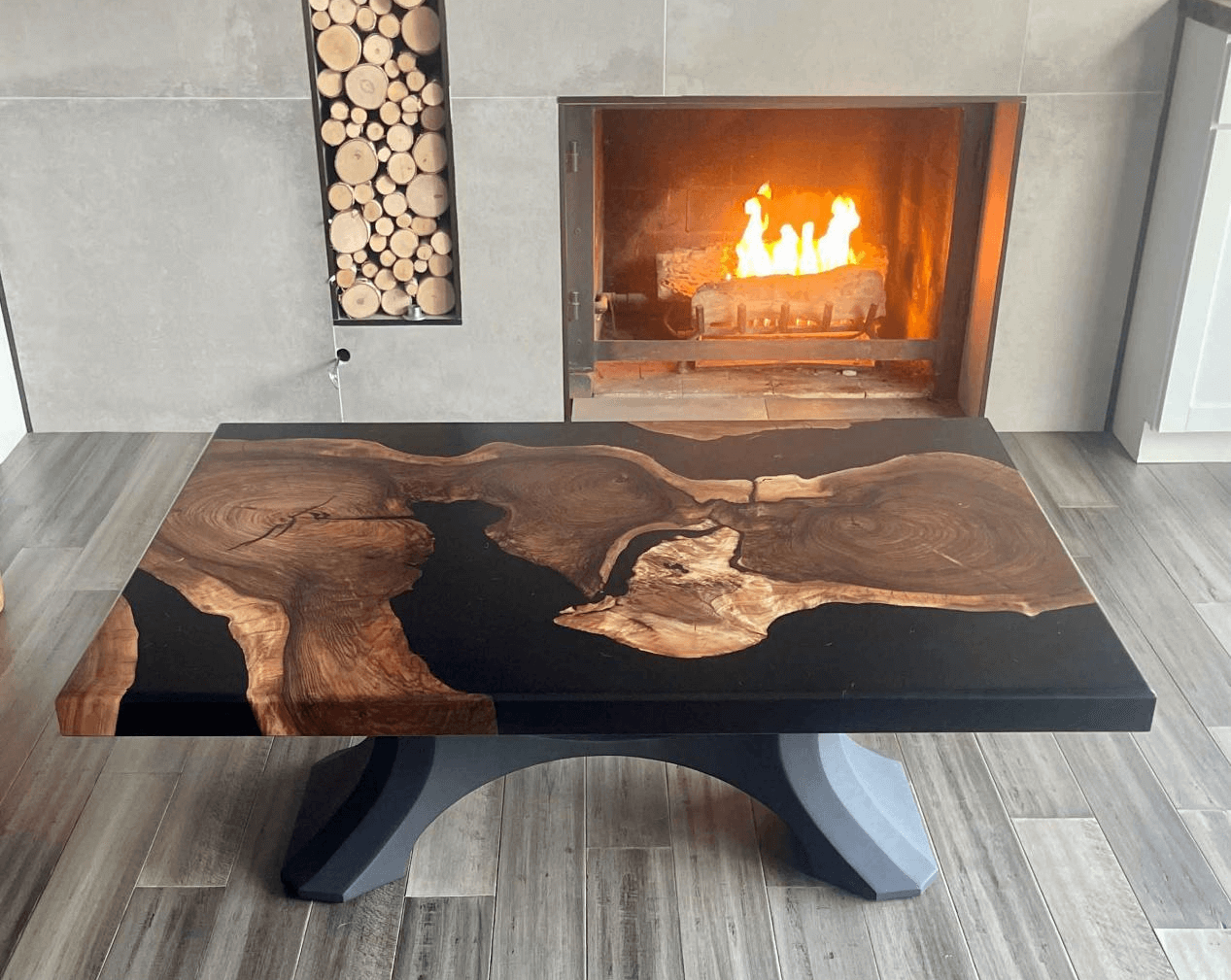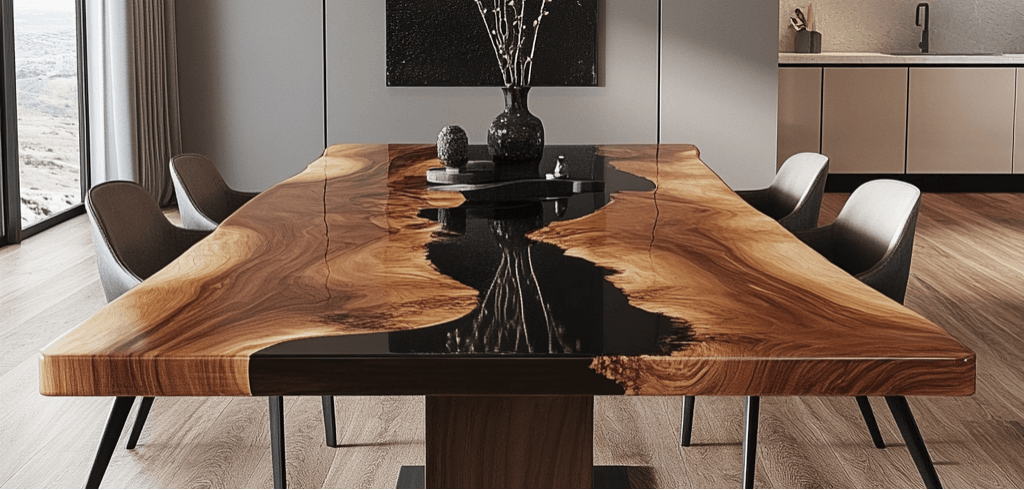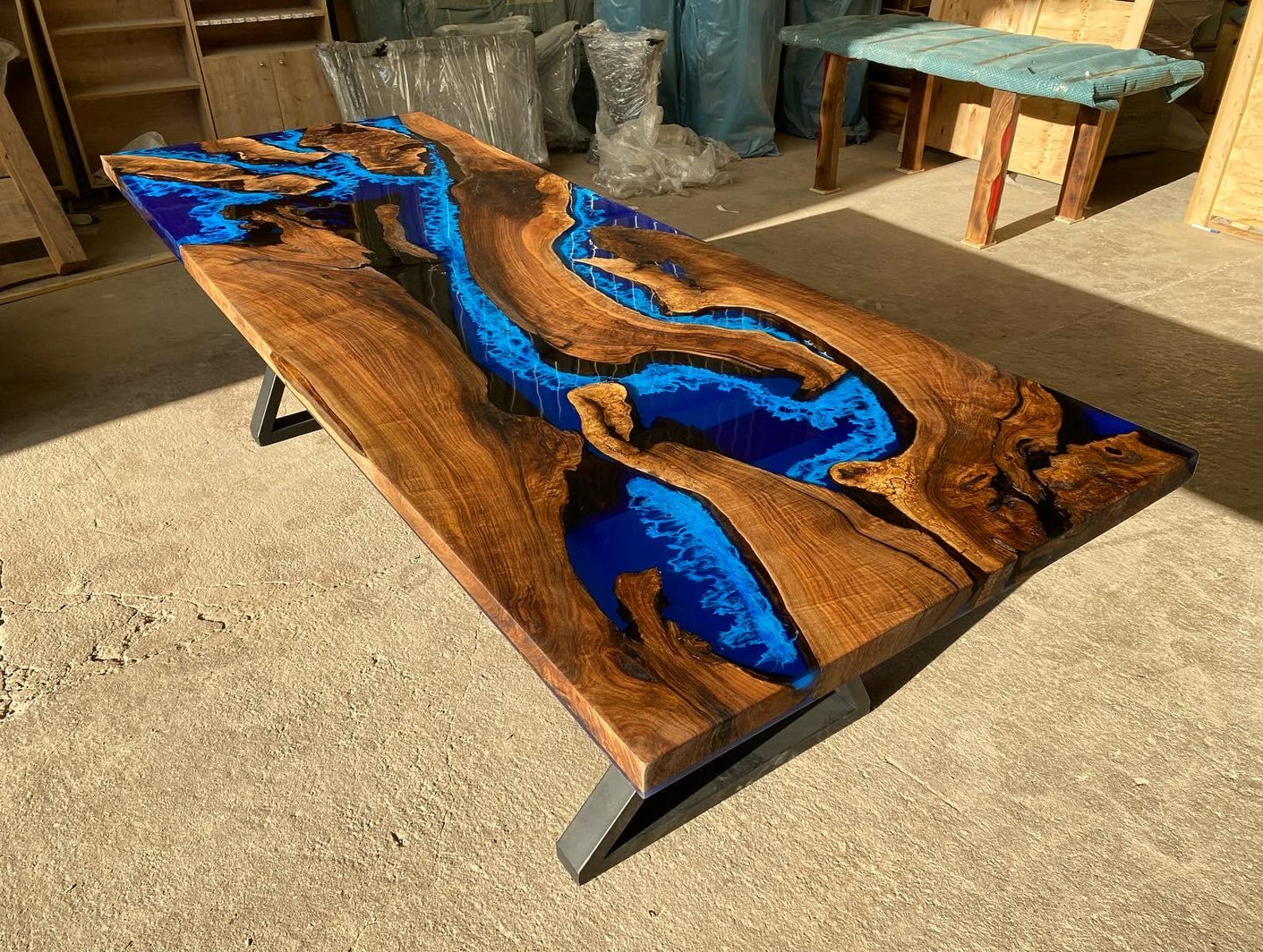When it comes to high-end furniture and elegant interior design, black walnut stands out as a timeless classic. From grand estates to luxury villas and even royal palaces, black walnut has long been a symbol of sophistication and prestige, both in the United States and beyond. But what makes this rich, dark wood such a favorite among designers, architects, and homeowners alike? Let’s explore why black walnut is not just a beautiful wood, but also the perfect choice for epoxy resin tables.
Black Walnut: A Timeless American Favorite
Black walnut has deep roots in American culture, prized for its beauty, durability, and fine grain. In the early days of American history, it was used in the furniture and décor of grand homes and aristocratic estates. Its use in luxury villas, royal palaces, and palatial mansions further cemented its reputation as a material fit for royalty. The deep, rich tones of black walnut offer an aura of elegance that can elevate any space. Whether used in large, statement-making furniture or in intricate, finely crafted details, black walnut continues to be a symbol of luxury and craftsmanship.
The Unique Characteristics and Grain of Black Walnut Wood

One of the most remarkable aspects of black walnut is its stunning appearance. The wood typically features a rich, dark brown color, often with streaks of purple or black, creating a beautiful contrast that adds depth to any design. The grain of black walnut is fine and straight, though it can also show a subtle, swirling pattern that adds texture and visual interest.
Unlike other hardwoods, black walnut has a distinctive sheen, which gives it an almost “polished” look without the need for excessive finishing. This natural elegance makes it a favorite for both traditional and modern furniture styles. The wood’s smooth texture and even grain make it perfect for a variety of applications, from ornate carvings to clean, minimalist designs. Additionally, black walnut’s density and strength give it a unique combination of both beauty and practicality.
Why Black Walnut is the Perfect Choice for Epoxy Resin Tables

When it comes to combining wood with epoxy resin for creating high-end tables, black walnut is a standout choice. Here’s why:
-
Durability and Strength
Black walnut is an incredibly durable hardwood, making it ideal for furniture that needs to withstand daily use. Its dense, solid structure means it can endure the weight of large epoxy resin pours without warping or cracking. This makes it a long-lasting option for tables that will be used for dining, working, or entertaining. -
Natural Beauty and Unique Grain
The rich, dark tones of black walnut complement epoxy resin beautifully. Whether you're pairing it with clear resin for a more traditional look, or with vibrant colored resins to create a striking contrast, black walnut’s unique grain and deep color work well with any resin hue. This adaptability makes black walnut a versatile choice for custom epoxy resin tables that match a variety of interior styles. -
Aesthetic Appeal with Epoxy Resin
The smooth surface of black walnut allows for a seamless fusion with epoxy resin, creating a polished, glossy finish that enhances both the wood and the resin. The natural grain of black walnut can be highlighted through a clear resin pour, or its dark tones can be paired with a variety of colored resins to achieve a unique, eye-catching effect. Whether you want a simple yet elegant design or a bold, artistic table, black walnut is an ideal choice for creating a one-of-a-kind masterpiece. -
Compatibility with Various Resin Colors
One of the standout features of black walnut is its ability to pair beautifully with a wide range of epoxy resin colors. Whether you're looking for a classic, neutral tone to complement the natural warmth of the wood, or a bold pop of color to make a statement, black walnut works harmoniously with both transparent and pigmented resins. From deep blues and greens to warm amber or even metallics, black walnut’s rich color makes it an adaptable partner for any epoxy resin project.
The Advantages of Walnut Furniture
Beyond its visual appeal, walnut wood—particularly black walnut—has several benefits when used for furniture:
- Stability: Black walnut’s dense, stable structure makes it resistant to warping and shrinking over time. This makes it ideal for furniture that needs to stand the test of time, like dining tables, coffee tables, and desks.
- Easy to Work With: While it is dense and durable, black walnut is still relatively easy to work with, making it a preferred choice for skilled craftsmen and woodworkers. Its fine grain allows for smooth cuts and intricate designs, ensuring that each piece of furniture showcases the beauty of the wood.
- Natural Resistance: Black walnut is naturally resistant to decay and insects, ensuring that furniture made from this wood remains durable and functional for many years.
Conclusion: Black Walnut – The Ultimate Choice for Epoxy Resin Tables
When choosing wood for your epoxy resin table, black walnut stands out for its luxurious appearance, durability, and compatibility with resin. Its deep, rich color and beautiful grain patterns make it an ideal wood for creating striking tables that are both functional and visually stunning. Whether you're creating a minimalist design or an intricate, artistic statement piece, black walnut offers the perfect foundation for any epoxy resin project.
If you’re ready to design your own epoxy resin table, consider black walnut for its timeless elegance and practical advantages. With its stunning visual appeal and lasting durability, black walnut is an excellent choice for crafting a table that will stand out for years to come.
If you’d like to explore more custom epoxy resin table ideas, be sure to check out Our Art Gallery. Ready to create your own unique masterpiece? Head over to Design Your Epoxy Table and start bringing your vision to life!

